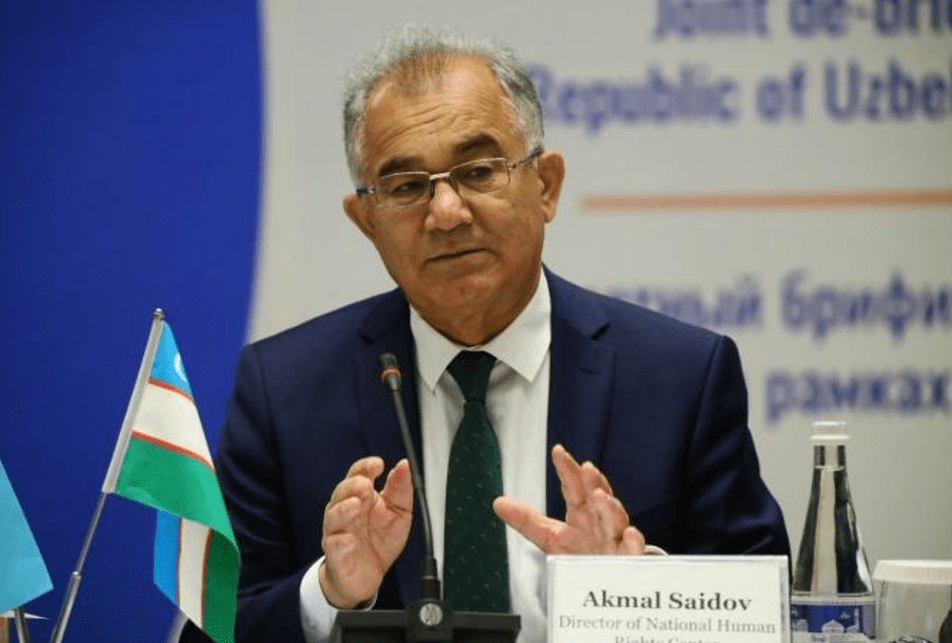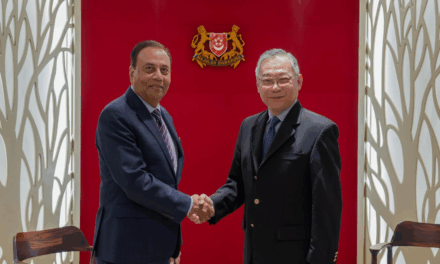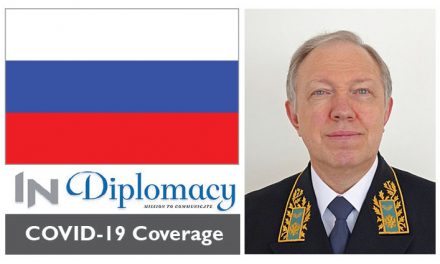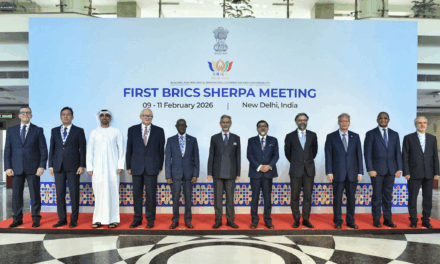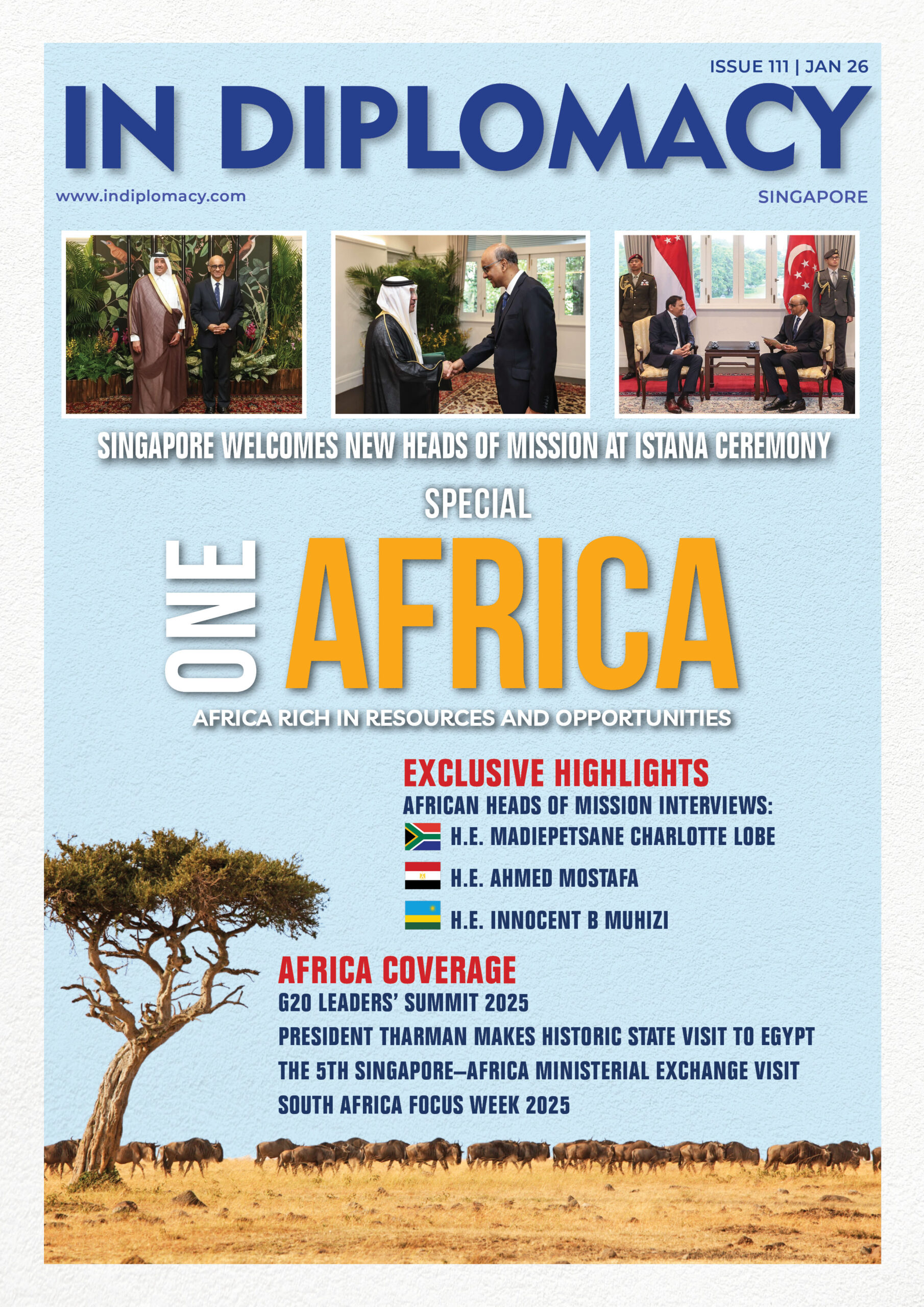The following three stages in the development of Electoral Legislation herald a new age in New Uzbekistan politics
THE upcoming presidential elections this October is one of the most important socio-political events of this year in Uzbekistan. It is of key importance for the further sustainable development of the country and the Central Asian region, in the medium and long term.
In recent years, within the framework of building a democratic, open to the outside world and competitive New Uzbekistan, much work has been carried out in the field of ensuring the fundamental rights of citizens to vote and to be elected to representative bodies.
First of all, consistent measures have been taken to strengthen the legal basis for free and fair elections held on the basis of universal, equal, direct suffrage by secret ballot openly and publicly – an integral attribute of a democratic rule of law, as well as to strengthen and develop a modern democratic electoral system.
At the same time, the electoral legislation of Uzbekistan is being dynamically improved on the basis of national practical experience accumulated during periodically organized elections, as well as taking into account international standards, the growth of political consciousness and electoral culture of citizens, the course and needs of the ongoing democratic reforms. Following are the “three steps” of development of the electoral legislation undertaken in New Uzbekistan.
STEP ONE
From Individual Electoral Laws to the Electoral Code
The codification of legislation means the activity to create a systematized unified regulatory legal act, carried out through a deep and comprehensive revision of the current legislation, discarding outdated regulatory material, the development of new legal provisions, and the comprehensive development of the national legal system. In particular, in foreign countries, the procedure for the preparation and conduct of elections is regulated by the adoption of ordinary laws, constitutional laws or electoral codes. At the same time, more than 30 countries of the world apply a model of legal regulation of elections in the format of the Electoral Code.
The new Uzbekistan also chose the path of codification of electoral legislation. In 2019, the Electoral Code was adopted, replacing 5 previously disparate electoral laws that were in force. The Electoral Code was developed with the participation of all political forces and parties of the country, civil society institutions, on the basis of a nationwide discussion. At the same time, the recommendations of the OSCE ODIHR and the Venice Commission of the Council of Europe, foreign observers, missions of international organizations such as the SCO, CIS, OIC and others on the previous elections in Uzbekistan were taken into account. In particular, 29 recommendations of the OSCE / ODIHR following the elections in Uzbekistan in 2016-2019 fully implemented in the Electoral Code of Uzbekistan, 8 – in part, others – are being studied by experts.
The adoption of the Electoral Code became the embodiment of the unswerving advancement of New Uzbekistan along the path of democratization and liberalization of society, strengthening pluralism of opinions, and a multi-party system.
The most important features of the Electoral Code were, in particular:
1. The main provisions of international election standards, providing for the direct election of members of at least one of the chambers of parliament, are fully implemented into the national electoral legislation. The norms for the nomination and election of deputies of the lower house of parliament from the Ecological Movement of Uzbekistan have been excluded from the legislation, while maintaining the number of deputy seats in the Legislative Chamber (150 seats)
2. Voters are given the opportunity to support the participation of more than one party in elections – it is stipulated that voters have the right to sign in support of one or more political parties
3. It is legally stipulated that political parties have the right to nominate a presidential candidate, a candidate for deputies of the Legislative Chamber. At the same time, political parties are entitled to nominate members of their party or non-party members as candidates
4. The rule limiting the participation in elections of persons held in places of imprisonment for crimes that do not pose a great public danger and less serious crimes has been excluded
5. The number of proxies of candidates from political parties has been increased (for presidential candidates – up to 15, parliament deputies – 10, regional Kengashes (Councils) of people’s deputies – 5, district and city Kengashes (Councils) – 3)
6. The role of observers from political parties in ensuring the transparency and democracy of elections has been strengthened. They can receive copies of documents on the election results immediately after drawing up the protocol of the election commission on the results of the vote count. A procedure has been established for immediate posting at the polling station of a copy of the protocol of the precinct election commission on the counting of votes for general review for a period of not less than 48 hours
7. The procedure for consideration by election commissions of applications from individuals and legal entities on the organization, holding of elections and summing up its results has been regulated. In addition, a candidate or observer has the right to lodge a complaint about any aspect of the electoral process (including requesting a recount or invalidating election results). It is legally stipulated that decisions of election commissions, including the CEC, can be appealed in court. The persons who filed a complaint are entitled to directly participate in its consideration
8. At the legislative level, the procedure for electing members of the Senate was determined, with the cancellation of the CEC Regulations on the procedure for their election
9. The Electoral Code clearly defines the types, forms and methods of campaigning by political parties and their candidates
10. Special attention is paid to observers, authorized representatives of parties, and the media. The Electoral Code has fixed the range of rights of the above-mentioned participants in the electoral process. The participation of these participants ensures the transparency of the electoral process. Representatives of political parties, the media, observers from citizens’ self-government bodies, foreign states, and international organizations may attend meetings of the election commission. Meetings of election commissions are held openly. Decisions of election commissions are published in the media or made public in accordance with the procedure established by the Electoral Code
11. There is a Unified Electronic Voter List of the Republic of Uzbekistan, which is a state information resource containing information about citizens-voters, addresses of their permanent and temporary residence.
In general, during the elections to representative bodies of power in 2019, the Electoral Code showed that it serves the strict observance of the constitutional electoral rights of citizens on the basis of democratic principles of justice, publicity, openness and transparency, creating the necessary conditions for voters to freely participate in elections, and political parties and their candidates – broad and equal opportunities during the election campaign.
STEP TWO
Ensuring the Independence of Activities of Election Commissions at all Levels
The “second step” of democratization of the electoral legislation and the country’s system is associated with the introduction in February 2021 of the relevant amendments and additions to the legislative acts of the Republic of Uzbekistan. At the same time, special attention was paid to solving, in particular, the following priority tasks:
1. Ensuring the active participation in elections of all citizens, the exercise of their electoral rights, regardless of their location and temporary residence. For the first time, the procedure for including citizens of Uzbekistan living abroad in the voter list, regardless of their consular registration in diplomatic missions, as well as the legal basis for voting in portable ballot boxes at the place of residence or work of voters abroad, has been legislatively enshrined
2. Further strengthening the independence of the entire system of election organizers – election commissions of all levels headed by the CEC, which is a necessary and most important condition for democratic elections. To this end, the status of members of the CEC and election commissions has been legislatively enshrined, the tasks of election commissions that are unusual for election organizers to organize meetings of candidates with voters have been excluded; the system of election commissions has been optimized – the institution of district election commissions that conduct elections to district (city) Kengashes (Councils) has been abolished. As a result of optimization, 5,739 unnecessary district election commissions are abolished, significant human resources (more than 54,000 people) are freed. Thus, all the legal conditions have been created for the independence of election commissions from all government bodies. Today, the organizational and legal level of the elections, the legitimacy of their results, mainly depends on how accurately all the subjects of the electoral process follow the provisions of the legislation
3. Creating more favorable legal conditions for political parties for campaigning, organizing all-party election events, including mass ones, for conducting an election campaign. Based on a deep study of national, foreign and international experience in ensuring democracy, fairness and fairness of elections, the constitutional terms of elections in Uzbekistan have been postponed from the first Sunday of the third decade of December to the first Sunday of the third decade of October in the year of the expiration of their constitutional term of office
4. Preventing the use of public resources during the election campaign. The OSCE / ODIHR election observation missions in various member states as priority recommendations in their final reports (for example, in the presidential elections in Georgia in 2018) indicate the need to “create a mechanism to prevent and / or effectively and timely address complaints about the abuse of administrative resources “. Taking into account the national and foreign experience in Uzbekistan, the prohibition of campaigning by civil servants (if he is not a confidant), as well as military personnel, employees of religious organizations, and judges is also legally enshrined. This is another critical step towards ensuring the impartiality, lawfulness and fairness of the elections.
Among the most important novelties of the “second step” are bringing the legislation on political parties and their financing in line with the Electoral Code, establishing a procedure for state funding of presidential and parliamentary elections, elections to local representative bodies, and reducing the time frame for appealing decisions of election commissions from 10 to 5 days.
Most importantly, the “second step” of democratization of the electoral system and the country’s legislation contributes to a fuller realization of the constitutional electoral rights of citizens, the expansion of their participation in elections, and serves as the basis for holding democratic elections.
STEP THREE
The Formation of Legal Conditions for Fair Elections
The modern electoral system of New Uzbekistan is the result of many years of evolution and multilateral political dialogue. In general, the electoral legislation has undergone many adjustments aimed at improving the electoral process. Moreover, the introduction of each, even a minor change, is always preceded by thorough work, an analysis of the past election campaigns and the development of proposals on the improvement of legislation on its basis.
Thus, the electoral system has developed dynamically, over a number of years, and these changes were a logical continuation of the political and legal development of the country.
A group of deputies of the Legislative Chamber of the Oliy Majlis initiated the issue of amendments and additions to the Electoral Code aimed at further improving electoral legislation and electoral practice, bringing it in line with international standards and best practices in the field of truly democratic elections. This applies, in particular, to the following issues:
1. The further distribution of powers and the strengthening of the principle of checks and balances between the constituent (the system of election commissions, headed by the Central Election Commission) and the judicial branches of government. The amendments and additions made provide, first of all, to strengthen the independence and responsibility of precinct election commissions for their decisions, while increasing the role of courts in considering appeals and complaints of citizens, other participants in the electoral process on the actions of election commissions and their decisions.
Taking into account the recommendations of the OSCE / ODIHR, the Election Code stipulates that the CEC will not consider applications from voters and other participants in the electoral process on the actions of election commissions and their decisions.
This eliminates the dual system of filing complaints and appeals (to the CEC and the court), as well as the possibility of making conflicting decisions and decisions. These issues will be attributed only to the competence of the courts.
At the same time, the judicial protection of citizens’ electoral rights is being significantly strengthened. Today, according to the Electoral Code:
• Any citizen can report to the precinct election commission about an error or inaccuracy in the voter lists. Within 24 hours, the precinct election commission is obliged to check the appeal and either eliminate the error or inaccuracy, or give the applicant a reasoned response to reject the appeal. In this case, the actions and decisions of the precinct election commission maybe appealed to the court
• Decisions of election commissions can be appealed by bodies of political parties, their candidates, proxies, observers and voters in court
• CEC decisions can be appealed to the Supreme Court of the Republic of Uzbekistan.
The Electoral Code provides for a clear procedure for subjects of electoral law to appeal against decisions made at all stages of preparation and conduct of elections. The Code regulates the procedure for consideration by election commissions of applications from individuals and legal entities on the organization, conduct of elections and summing up its results
All this contributes to the realization of the fundamental right of citizens to justice (the dispute must be considered and decided by the court). The constituent authority should only solve the problems of organizing elections, creating conditions for citizens to freely express their will, and the assessment of the actions (inaction) of election commissions should be carried out by the courts.
2. The introduction of a notification procedure for mass meetings, rallies and processions organized by political parties during elections. So, in 2019, before the parliamentary elections, political parties held more than 800 mass rallies throughout the country. At the same time, there were no obstacles and there were no appeals from the parties about any violations of their rights to hold mass events.
However, there was a gap in the legislation in this area. Therefore, in the Electoral Code, the norm is enshrined that parties will organize mass events in advance – at least three days in advance – notifying the khokimiyats of the place and time of their holding. That is, there will be not a “permissive”, but a “notification” procedure.
3. Strengthening the capacity of district election commissions to organize and conduct presidential elections. So, today, in accordance with the law, at least seventy days before the elections, the Central Election Commission forms a district election commission for elections of the President of the Republic of Uzbekistan, deputies of the Legislative Chamber, consisting of a chairman, deputy chairman, secretary and 6-8 other members of the commission. However, here it is necessary to take into account the specifics – for parliamentary elections within one electoral district, 70-120 precinct election commissions are formed, and during the presidential elections – about 1000 precinct election commissions. Consequently, during the presidential elections, the task of coordinating activities and providing effective assistance to precinct election commissions becomes much more difficult. In this regard, the Electoral Code has increased the number of members of precinct election commissions to 11-18 people.
The “third step” also envisages a number of other novelties that eliminate the technical and organizational issues identified during the previous elections. In general, they serve to democratize electoral legislation and practice, taking into account the generally recognized international principles of holding fair and truly democratic elections.
Raising the Electoral Culture of the Population is a Guarantee for Transparency and Fairness of Elections
Democratic transformations in Uzbekistan, as well as an ever-increasing level of political and legal consciousness of citizens, civil institutions are the basis for further improvement of the country’s electoral system.
In May, 2021, the Parliament of Uzbekistan has ratified the Convention on the Rights of Persons with Disabilities. Under article 29 of the Convention, States parties guarantee persons with disabilities political rights and the opportunity to enjoy them on an equal basis with others, and undertake, inter alia, to ensure that persons with disabilities can effectively and fully participate, directly or through freely chosen representatives, in political and public life on an equal basis with others including had the right and the opportunity to vote and be elected.
The Electoral Code embodies all the mechanisms for the exercise by persons with disabilities of their rights to participate in the public and political life of the country by voting. Thus, the premises for voting should be provided with ramps for persons with disabilities. Technological equipment in polling stations – tables, booths and ballot boxes – should be installed taking into account the needs of wheelchair voters.
During the 2019 elections to the Legislative Chamber of the Oliy Majlis, 4,158 persons with disabilities were involved in election commissions of various levels. In May 2021, a Memorandum of Cooperation was signed between the Central Election Commission and the Society of Disabled People, the Society of the Blind, the Society of the Deaf and the Association of Disabled People of Uzbekistan. To create the most convenient and comfortable conditions for voters with disabilities, election commissions will hold a number of organizational events and prepare the necessary information materials.
Information about the registered candidates for the office of President of the country will be posted on the information boards of the polling stations. For example, a visually impaired voter, having placed a blank ballot paper on a stencil using Braille, will be able to feel the name of a registered candidate by touch and place any sign in the square of the corresponding slot. For deaf and hard of hearing voters, if there are applications, sign language interpreters may be invited to polling stations on election day. Pre-election TV programs will be broadcast with sign language translation and subtitles, and materials for the blind will be published in special magazines using Braille.
All these measures will certainly contribute to the free expression of the will of persons with disabilities, who today are active participants in democratic reforms in the country.
Increasing the electoral culture and activeness of voters, strengthening their confidence in the electoral institution, strengthening the conviction in society that the only modern and democratic mechanism for the formation of state power, the implementation of constitutional principles in the new conditions are elections, are the most important tasks and necessary conditions for the implementation of constitutional rights citizens to participate in the management of the affairs of society and the state.
To achieve these goals, it is necessary to implement at a qualitatively new level, in particular, the following tasks:
A. The development of professional skills of the organizers, as well as the strengthening and improvement of the system of legal education of voters and all other participants in the electoral process, giving this work a purposeful, public and comprehensive nature
B. Improving the general legal and electoral culture of various categories of participants in the electoral process, especially young people
C. Improving work with the media, increasing their knowledge of the electoral process, involving them in the process of disseminating reliable information at all stages of elections, as well as increasing media culture in society
D. The involvement of civil society institutions in ensuring democracy, legitimacy and fairness of the electoral process, their involvement in the activities of state bodies to protect the rights and interests of all participants in the electoral process, voters.
At the same time, special attention should be paid to increasing the activity and involvement of the population in making decisions of statehood of importance through a thorough study of public opinion when developing draft laws and taking measures of public importance (for example, through the regulation.gov.uz portal or Mening fikrim)
E. The formation and development of information and legal educational resources based on new information and communication technologies.
All these measures also contribute to providing voters with guarantees of free expression of will, strengthening a sense of patriotism and responsibility, strengthening political stability in society, and increasing the legal literacy of the population.
It should be borne in mind that the process of developing and improving the electoral system, as well as electoral legislation, is far from over. After all, world practice shows that almost every regular election campaign highlights new problems. We are at such a stage of their development when it is necessary, using the accumulated experience, to predict how these or those proposed changes will be applied.
Election organizers must be familiar with the laws and be able to work in accordance with them. This should be facilitated, among other things, by the National Action Program prepared by the Uzbek parliament to improve the electoral culture of the population. The main thing is their striving for the growth of professionalism in the conduct of elections, serving the law in accordance with its meaning and content.
In general, all these “three steps” of democratization of electoral legislation and practice in New Uzbekistan, together with the large-scale and dynamic processes of political, economic, legal, social and spiritual renewal of society and modernization of the country being carried out in the country, will lead to:
Firstly, the significant development and strengthening of a real multi-party system in the country. A healthy inter-party competition has been created in the country with equal conditions for all parties to conduct an election campaign, fair distribution of budget funds allocated for the preparation and conduct of elections, fairness of voting and legitimacy of elections. In other words, there is every reason to assert that the upcoming presidential elections will be held in a multi-party system, competition of candidates, openness, freedom of opinion and genuine choice.
Secondly, expanding the role and opportunities for participation in elections of civil society institutions, volunteers, a significant increase in the level of political, public activity, civic responsibility of people, exactingness and exactingness of citizens in assessing the progress of socio-economic and political and legal reforms.
Third, the creation in Uzbekistan of all the necessary legal conditions for parties and representatives of non-governmental non-profit organizations, local and foreign observers, the media for the exercise of their rights and obligations during the election campaign.
Fourth, expanding the use of digital technologies in the electoral process and their legal regulation.
Fifth, the coronavirus pandemic has made a difference in every aspect of human life. In a number of countries, elections were canceled or postponed. Now the elections are being held in new conditions, for the first time people are admitted to polling stations strictly wearing masks using an antiseptic. In organizing the electoral process in a pandemic, attention should be paid to the following aspects:
• Measures involvingthe general organization of elections. These are measures related to premises, non-contact thermometry, flow regulation, social distance, mask mode, use of sanitizers.
• The requirements for voters, in particular, the mandatory wearing of a mask, the use of antiseptics, and distance.
• The participants in the electoral process, who will be present at the polling stations permanently on election day, are members of election commissions, observers, and proxies.
Elections are indeed turning into effective mechanisms for the formation of state power, ensuring its continuity and political stability.
About the Author
Prof. Akmal Saidov who is the First Vice-Speaker of the Legislative Chamber of the Parliament of the Republic of Uzbekistan. He is also a Director of the National Human Rights Centre of the Republic of Uzbekistan. He graduated from the Tashkent State Law Institute, Postgraduate courses followed by defending of dissertation in Comparative Law at the Moscow Institute of State and Law and Doctoral Dissertation on Western Comparative Law. During his career, he has served on various important positions at headquarters and abroad including Ambassador Extraordinary and Plenipotentiary of Uzbekistan to France and Permanent Representative of Uzbekistan at the UNESCO, Chairman of the Committee on Democratic institutions, Non-governmental organizations and Citizens’ self-governing bodies of the Legislative Chamber of the Oliy Majlis (Parliament) of Uzbekistan He have over 200 publications and books in the areas of Comparative, International, Constitutional and Muslim Laws and reports at over 50 international conference, including sessions of the UN Human Rights Council, UN Treaty bodies and the OSCE.

